Tooth infections can be painful, dangerous, and even life-threatening if left untreated. Many people turn to over-the-counter solutions in hopes of managing the discomfort—one popular option being Listerine, a well-known antiseptic mouthwash. But the question remains: Will Listerine kill a tooth infection or is it simply a preventative oral hygiene product?
In this detailed guide, we’ll explore the science behind tooth infections, how Listerine works, and whether it can play any role in treating or preventing infections. You’ll also discover what actually works, when to see a dentist, and how to manage pain at home—safely and effectively.
- What Is a Tooth Infection?
- What Causes Tooth Infections?
- Common Symptoms to Watch For
- What Is Listerine and How Does It Work?
- Can Listerine Kill Tooth Infection Bacteria?
- Why Listerine Cannot Cure an Abscessed Tooth
- When Listerine Can Help
- Dentist-Approved Treatment Options
- Effective Home Remedies (Short-Term Relief Only!)
- Preventing Tooth Infections Naturally
- Risks of Ignoring a Tooth Infection
- FAQs on Listerine and Oral Infections
- Final Verdict: Is Listerine a Solution or a Support?
- Key Takeaways
What Is a Tooth Infection?
A tooth infection, or dental abscess, is a buildup of pus caused by a bacterial infection inside the tooth or gums. It usually occurs when bacteria enter the tooth through a cavity, chip, or crack and spread to the pulp—the innermost layer that contains nerves and blood vessels.
Tooth infections are serious medical conditions that can spread to other parts of the body if not treated promptly.
Worth a Look: What Is the Strongest Natural Antibiotic for Tooth Infection?
What Causes Tooth Infections?
The most common causes include:
- Untreated cavities
- Cracked or damaged teeth
- Gum disease (periodontitis)
- Failed dental work
- Poor oral hygiene practices
Over time, these factors allow bacteria to invade deeper layers of the tooth or gum tissue.
Curious About This Topic? Read: Can a Tooth Infection Kill You? Don’t Ignore These Signs
Common Symptoms to Watch For
If you’re wondering whether you have a tooth infection, look out for these symptoms:
- Throbbing or sharp toothache
- Swelling in the face, jaw, or gums
- Sensitivity to hot or cold
- Bad breath or a metallic taste
- Fever and fatigue
- Swollen lymph nodes under the jaw
- Difficulty chewing or opening your mouth
⚠️ Note: If your tooth pain is accompanied by a fever or facial swelling, seek emergency dental care immediately—the infection may be spreading.
What Is Listerine and How Does It Work?
Listerine is a brand of antiseptic mouthwash that contains essential oils with strong antimicrobial properties. Its core ingredients include:
- Eucalyptol
- Menthol
- Thymol
- Methyl salicylate
These compounds are clinically proven to kill bacteria that contribute to plaque, gingivitis, and bad breath.
Listerine’s Claimed Benefits:
- Kills 99.9% of oral bacteria on contact
- Reduces plaque buildup
- Helps prevent early gum disease
- Leaves mouth feeling fresh
However, these benefits are primarily preventative in nature, and not therapeutic for deep infections.
Can Listerine Kill Tooth Infection Bacteria?
While Listerine can kill surface-level bacteria in the mouth, it cannot reach bacteria inside a tooth’s pulp chamber or a gum abscess. The antiseptic ingredients in Listerine don’t penetrate tooth enamel or tissues to a depth necessary to eliminate the infection entirely.
✅ Note: Listerine is excellent at controlling oral bacteria on the gums, tongue, and cheeks, but that doesn’t mean it can treat a medical infection in the root of a tooth.
Here’s What Listerine Can Do:
- Temporarily reduce bacterial count in the mouth
- Help prevent new infections from forming
- Support oral health when used consistently
- Freshen breath and reduce inflammation
Here’s What Listerine Cannot Do:
- Cure a dental abscess
- Replace a root canal, antibiotics, or dental surgery
- Eliminate bacteria deep in the tooth or jaw
Why Listerine Cannot Cure an Abscessed Tooth
Once a tooth infection has spread into the pulp or surrounding bone, it forms a closed-off pocket of pus called an abscess. No over-the-counter product—including Listerine—can physically reach or drain this area.
Furthermore:
- Listerine doesn’t contain antibiotics
- It can’t relieve deep inflammation or pain
- It does not disrupt the bacterial biofilm inside a tooth
That’s why seeing a dentist is critical. If left untreated, infections can spread to the brain, bloodstream, or lungs, creating life-threatening complications.
When Listerine Can Help
Although it won’t cure an infection, Listerine still plays an important role in oral hygiene maintenance, especially when:
- Preventing infections before they start
- After professional dental cleaning to maintain gum health
- While waiting for a dentist appointment
- Post-treatment, to reduce bacterial regrowth
Using Listerine daily—alongside brushing and flossing—creates a hostile environment for harmful bacteria.
🧠 Pro Tip: Choose an alcohol-free version of Listerine if you have sensitive gums or a dry mouth condition.
Dentist-Approved Treatment Options
A tooth infection requires professional intervention. Here are the main treatments dentists recommend:
1. Root Canal Therapy
Removes the infected pulp, disinfects the canal, and seals the tooth. Often preserves the tooth structure.
2. Tooth Extraction
In cases where the tooth is beyond repair, removal is the safest option.
3. Incision and Drainage
If the abscess is swollen and full of pus, a small incision may be made to relieve pressure.
4. Antibiotics
These are prescribed to contain the infection, especially if it has begun to spread. However, they’re not a standalone cure.
Effective Home Remedies (Short-Term Relief Only!)
While waiting to see a dentist, you can manage the pain and inflammation with these methods:
- Salt Water Rinse – Acts as a mild disinfectant and soothes inflamed gums
- Cold Compress – Reduces facial swelling
- Hydrogen Peroxide Rinse (Diluted) – Helps kill bacteria
- Clove Oil – Natural analgesic properties
- OTC Painkillers – Ibuprofen or acetaminophen for pain control
⚠️ Reminder: These remedies provide only temporary relief and do not treat the infection.
Preventing Tooth Infections Naturally
Preventing an infection is easier—and far less painful—than treating one. Here’s how to keep your teeth healthy:
Daily Routine:
- Brush twice a day with fluoride toothpaste
- Floss once daily to clean between teeth
- Use Listerine to reduce bacteria and plaque
- Avoid sugary foods and acidic beverages
Lifestyle Tips:
- Stay hydrated to promote saliva flow
- Avoid smoking or tobacco products
- Eat a balanced diet rich in calcium and vitamin D
Dental Visits:
- Get professional cleanings every 6 months
- Have cavities filled promptly
- Treat gum disease in its early stages
Risks of Ignoring a Tooth Infection
Untreated infections can spiral into serious complications. These include:
- Osteomyelitis (bone infection)
- Sepsis (life-threatening blood infection)
- Cavernous sinus thrombosis
- Loss of adjacent teeth
- Facial cellulitis
🚨 Remember: Don’t wait for the pain to go away. Infections don’t heal on their own—they either get worse or require intervention.
FAQs on Listerine and Oral Infections
Can I use Listerine after a root canal?
Yes. Using Listerine after treatment can help maintain oral hygiene, but only after your dentist approves it.
How often should I use Listerine?
Twice daily after brushing and flossing for optimal benefits.
Can Listerine be used to prevent a tooth infection?
Yes, it can help by killing bacteria before they cause cavities or gum infections—but it cannot cure an existing abscess.
Can Listerine replace antibiotics for a tooth infection?
No. While Listerine can help reduce bacteria in the mouth and ease symptoms temporarily, it cannot treat or eliminate a deep tooth infection. Antibiotics or professional dental care are typically necessary.
Is it safe to use Listerine if I have a tooth abscess?
You can use Listerine to manage bacteria and control odor, but it won’t cure the abscess. Always consult a dentist, as an abscess may require drainage or antibiotics.
Final Verdict: Is Listerine a Solution or a Support?
Listerine is a powerful antiseptic mouthwash, and it plays a valuable role in supporting overall oral hygiene. It helps reduce bacteria, prevent plaque buildup, and freshen breath. However, it is not a treatment for tooth infections.
Tooth infections require prompt diagnosis and treatment from a licensed dentist. Using Listerine during or after treatment can help prevent future infections, but relying on it alone can be dangerous and lead to severe complications.
Key Takeaways
- Listerine cannot cure a tooth infection but helps prevent them
- It kills surface bacteria, not those deep inside a tooth
- See a dentist immediately if you suspect an infection
- Use Listerine as a supportive hygiene tool, not a substitute for treatment
- Home remedies only offer short-term relief
Disclaimer: The content provided in this article is for educational and informational purposes only. It does not substitute professional medical advice, diagnosis, or treatment. For guidance specific to your dental condition or recovery, please consult your dentist, oral surgeon, or licensed healthcare provider.

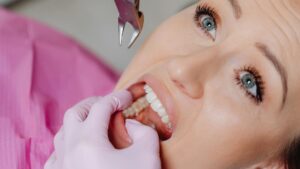

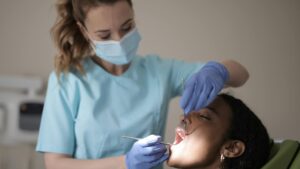



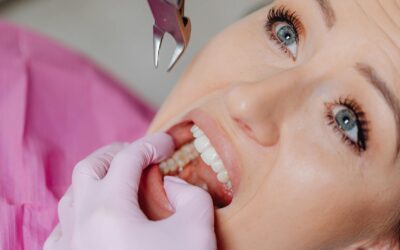

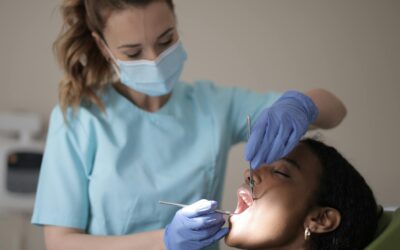







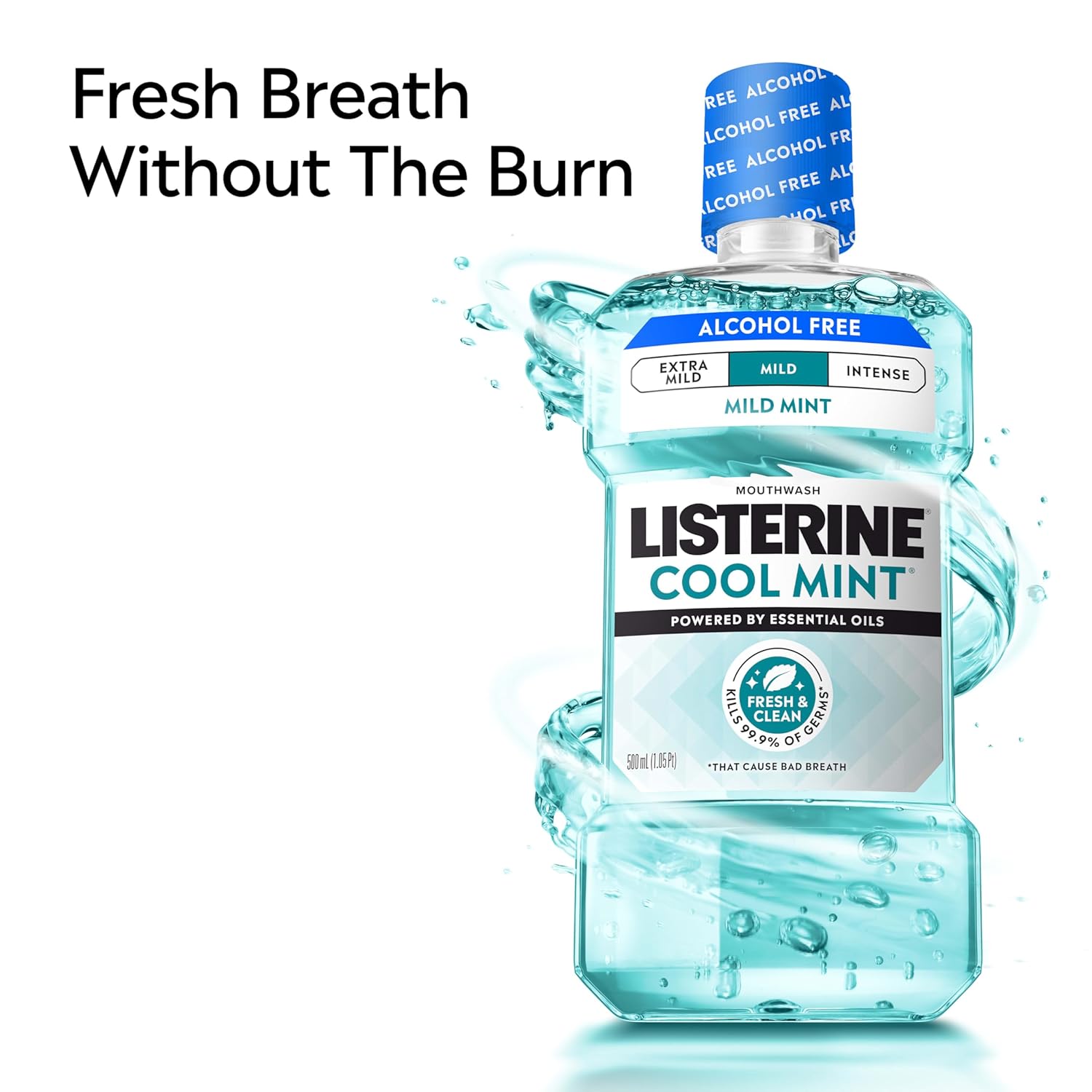
0 Comments